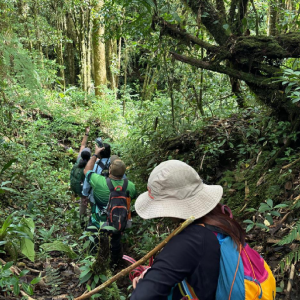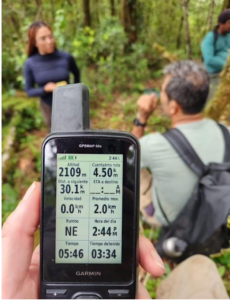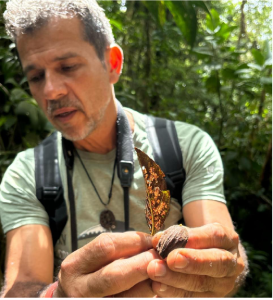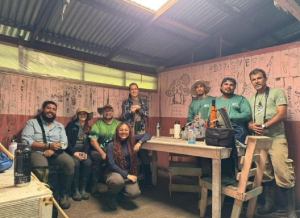Refugio 2000: Hidden Ally Supporting Tropical research
By Orlando Vargas, Sofía Rodriguez and the OTS Editorial Team.
The hidden shelter at 2,000 m a.s.l. in Braulio Carrillo National Park “Refugio 2000” is more than just a rustic shelter; it is a key element within a 51-kilometer biological corridor connecting La Selva Research Station to the summit of Barva Volcano (2 900 m a.s.l. ). This corridor represents a scientific legacy that began in the 1980s, aimed at understanding how forests and communities in tropical ecosystems change with elevation.
Thanks to a landmark effort by OTS and the Costa Rican national park system, more than 10,000 hectares of forest were purchased to create this continuous corridor of protected land. This corridor not only preserved immense biodiversity but also enabled the establishment of the Altitudinal Transect, now recognized as one of the most valuable long-term ecological monitoring transects in the Neotropics.
Earlier this year, the OTS Scientific Academic team returned to Refugio 2000 with a specific goal: to assess the condition of the forest trail and the structure of the shelter to re-enable it as a functional research base. Upcoming research efforts include the installation of acoustic recorders to continue long-term bird monitoring. This data may reveal how bird communities are shifting over time in response to land-use change and climate change.


Continue to deliver critical scientific data along the transect, the hidden ally itself must be deployed in conditions that protect it and allow optimal data collection.
For research to happen, the hidden ally itself must be up to the task. As Orlando Vargas, botanist and naturalist involved in the scientific- academic department at La Selva Research Station, notes, “these shelters are more than infrastructure; they are hidden facilities are crucial in the pursuit of knowledge.” Their condition is just as important as the data they help generate.
Refugio 2000 is not just a basic shelter. It’s a link across time — connecting us to historical data and most importantly, reminding that scientific infrastructure also needs care and investment to thrive.
Donations through this link will support the restoration and ongoing maintenance of the refugios and trails along the altitudinal transect, enabling continued long-term ecological research and biodiversity monitoring between La Selva Research Station and Braulio Carrillo National Park.



